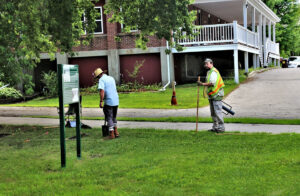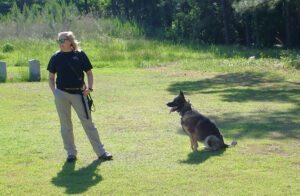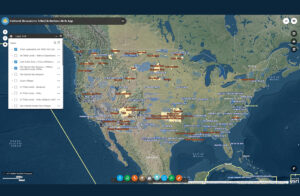CEMML provides effective and environmentally sound solutions for controlling invasive species and developing/implementing biosecurity procedures.
Invasive Species and Biosecurity Services
Invasive Species
- Baseline and early detection surveys to locate and delineate existing invasive plants, insects, and animals and identify new ones before they become established.
- Programs for management of invasive species.
- Research on new and innovative methods for controlling invasive species.
- Experienced staff hold pesticide applicator licenses and certifications.
Biosecurity
- Quality Assurance/Quality Bio-sanitation procedures to verify that cargo is free of invasive species and meets federal pest management standards.
- Standard Operation Procedures for invasive species rapid response plan and team capacities to contain outbreaks in the field.
- Integrated approaches to managing risks to humans, native species, and agriculture from invasive species.
- Strategic planning to limit the spread of invasive organisms and diseases.
- Site-specific programmatic pathway risk assessments and analyses.
Email Invasive Species and Biosecurity Services inquiries to cemml@colostate.edu.
Other CEMML Natural Resources Management Services
Latest CEMML Stories

CEMML archaeological survey explores early 20th century history of Fort McCoy
An archaeological survey conducted by CEMML personnel in the summer of 2022 was initially meant to investigate the creation of several hundred concrete tent pads at Fort McCoy, Wisconsin. Research into the tent pads, dating from around the early 20th century, also unearthed additional information about other possible known archaeological features and sites around what is referred to as “Old Camp McCoy.”

Canine detectives help locate long-forgotten burials at a Virginia military base
Mulberry Island, Virginia, the location of Joint Base Langley-Eustis, has a long history of human habitation, dating back 10,000 years. The area has more than 230 archaeological sites, including cemeteries with unmarked graves. CEMML, in partnership with the Fort Eustis Cultural Resources Program, is using human remains detection dogs to help identify unmarked burial sites to better understand, honor, and preserve the area’s rich history.

CEMML partnership helps ensure Native American voices are heard in military planning
Much of the roughly 26 million acres that the Department of Defense oversees nationwide was once occupied by Native American tribes. Military installations are legally required to consult with interested tribes when carrying out projects that affect natural and cultural resources. A tool developed by CEMML and the Air Force Civil Engineer Center helps determine which tribes may have an interest in an installation’s land or airspace.
Share this page on social media